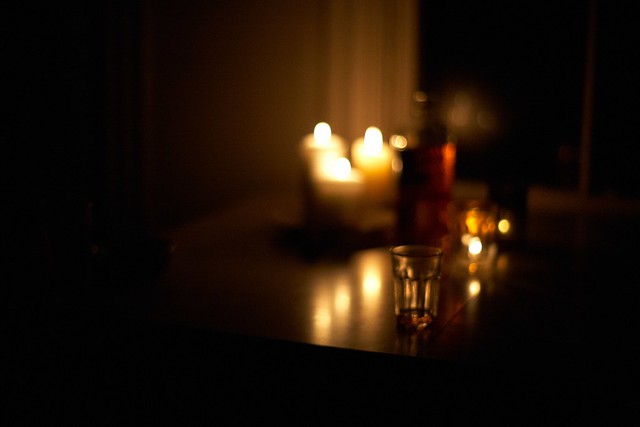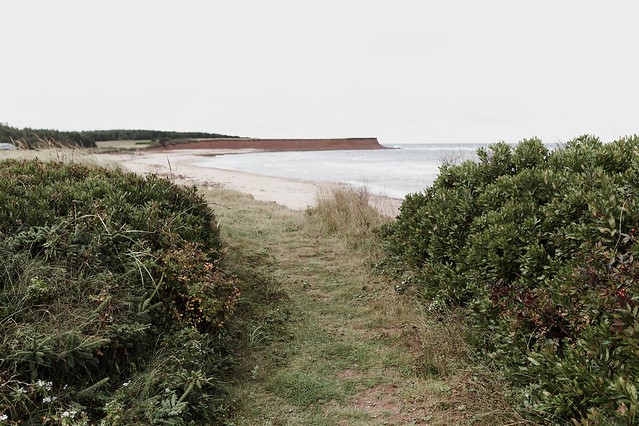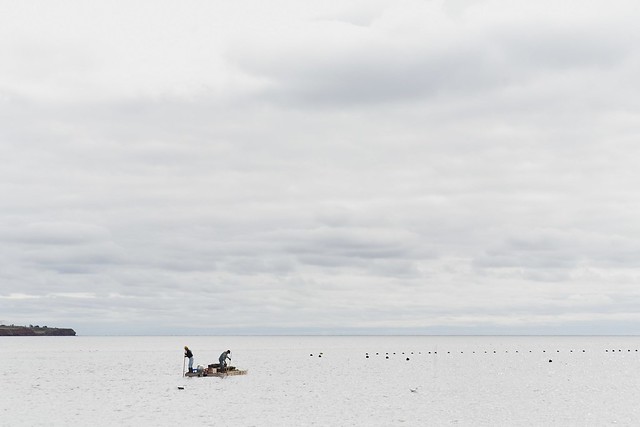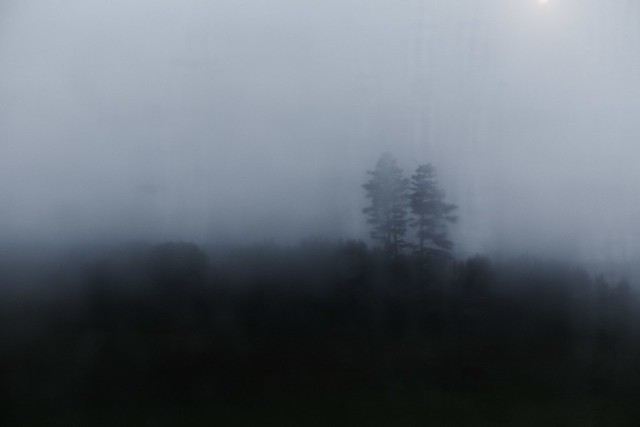I don't think I've ever mentioned this, but I'm a ship's captain's daughter.
I'm suprprised I've omitted this essential information, as it was relative proximity to the waters upon which my father sailed that determined where I was born, and where I would grow up.
My father's workplace was the wheelhouse of a steamship, at the top of a steep flight of stairs. Each step had a ridged metal tread at its edge that shone. I made that climb countless times up to the ship's bridge, and spun around on many a wheelsman's chair, and all too often accidentally smudged my greasy fingerprints on the lenses of the binoculars they kept handy. I can tell you the type of cookies in the crinkly packet always tucked by the tea kettle, and how much I liked it when my father wore his captain's hat with its embroidered gold leaves, which wasn't often.
I spent a good deal of my childhood on boats. There are regulations mandating age minimums for children on those boats now, but they were more casual with such concerns then. I've got stories to tell.
I could tell you about the mail boat that would pull alongside ours in the Detroit river. I think it brought the Customs Officer aboard, to stamp the papers that allowed our passage across the line that divides Canada and the United States. More importantly to me, the small boat also brought tuck shop supplies. My father once ordered a case of Coca Cola and a box of Nestlé Crunch Bars for my brother and me to hoard and barter and savour for the remainder of our run. You really can't beat a day like that.
I could tell you about studying the undersides of bridges as we slipped underneath. Or about the people who would wave from shore as we'd pass through a canal. And how we'd wave back.
I could introduce you to a Sleeping Giant.
Or tell you how, after earning your sea legs, (the habit of keeping a bounce in your step, knees flexible and unlocked even when standing in one place), to step on land feels strangely static. There is a momentary shock to realize the ground isn't moving.
I could tell you about storms. The ship would roll and pitch, and I'd understand why some of the furniture was chained to the floor. In wild storms, when the waves came onto the deck, or the rain was hard, or the wind fierce, we couldn't make the walk from our quarters at the bow of the ship to the galley at its stern for our meals. (Not all ships have this set up, with such a split.) In those circumstances we would climb below deck to the tunnel, a space between the side of the ship and the holds, and travel the football-field length of the deck that way, stepping up and through the raised, rounded doorways that marked our progress.
There was a time I woke up to lightning in the middle of the night. I went to the window and the only lights to be seen were the swaying blips of those on deck. Then the sky lit up, a shock of energy diving straight into the water. I boosted myself up onto the deep windowsill. It was recessed, with a heavy drape mounted outside. I pushed my back up against one side of the alcove and put my legs straight out to the other. So wedged, I pulled the curtain closed, and watched the lightning flash. I don't remember going back to bed.
I could tell you about the days that were grey.
On those days, those windless days, the water was still and heavy; a silver-backed mirror reflecting a sky that was perfectly overcast, without sliver of blue to be seen. There would be no waves, no movement except our own. The water looked viscous. As it broke against the bow it folded upon itself like ripples of pewter silk, reminiscent of the slick, rounded backs of sea lions when they surface.
I did not realize the size, the space, the breadth of the unkown on an airplane; in the air, the miles in between wing and ground grants a distance that makes it seem unreal. In a car, you are immersed in the landscape. It is all around, you're closely contained. It was on water that I truly understood the smallness of my world; a world that at that moment was 30 souls on a 700-some-odd-foot man made island of steel and steam. It was one of those grey days, when the outline between sky and water is lost, and there was no land in sight. Only grey, in every direction. I stood still, aware of the hum of the engines that powered us - a vibration you feel in your joints, in the soles of your feet - and was sure I could walk the thick tension of the lake, all the way to the horizon, and go on from there. We were a pinprick. A dot on a map.
I talked to my mother about this memory, and she provided the context; it was most likely Lake Superior we were sailing then, possibly Erie. She told me a quote from Christopher Columbus, which seemed to fit: "You can never cross the ocean unless you have the courage to lose sight of the shore."
These photographs aren't of the waterways I knew, although my father has navigated these too. They are of Prince Edward Island, a province on the eastern edge of Canada, and the setting for a new adventure. For Kinfolk Magazine's second volume, two friends - Michael Graydon and Nikole Herriott - and I put our heads together on a project.
We collaborated on a story about travel, most specifically as a pair. It follows the cross-country drive to the 150-year-old farmhouse where they stayed for a week. Here's an excerpt:
Clothes brought in from drying, branded with the scent of salted air.


The magazine is out now, available both in print and on the iPad. If you would like our recipes from the story, I'm chuffed to point you in the direction of Bon Appetit, where they're published along with a few more shots from PEI. Thanks so much to Julia for that.
And speaking of photographs, Nikole has some others up today too - we wanted to show y'all some of our favourites, and though it nice to divide them between us two. So if you head on over to her site you can see them, and read her thoughts on the matter.
For a look back at the launch of Kinfolk and our first collaboration, it's here.
All photographs by Michael Graydon. Food and styling by Nikole Herriott. Cheers guys, it was great fun.



